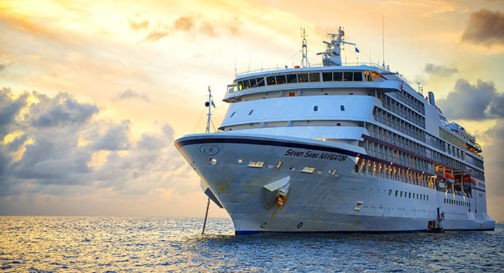How Can Barge Workers Claim Compensation After an Accident?
August 14, 2024
I’ve Been Injured Working on a Barge, Can I Legally Get Needed Compensation?
As a maritime worker working on a fishing vessel, barge, etc., there’s always a chance you would be hurt and, at times, seriously injured or killed. Some injuries are minor, such as a sprain, but many maritime accidents are severe and can cause long-lasting injury and the inability to work.
However, the legal system in California (and most of our county) allows you, as the victim, to seek the compensation you need after a barge or other maritime accident under the right circumstances.
So, if you’re a seaman, under most circumstances, you have the right to take legal action after your injury against your employer and any others that may be involved.
Barge accidents are one of the more common incidents that can cause severe injury. They commonly take place near ports, where barges commonly operate.
Many factors can contribute to or cause an accident, such as moving at unsafe speeds, lack of safety training, impaired coworkers, poorly maintained equipment, and more.
You must note that these maritime lawsuits can be complex, and you need the qualified, experienced, and knowledgeable guidance of a California maritime lawyer.
How Can I Get Compensation for My Barge Accident Injuries
Every case differs, and how you receive compensation depends on many things, such as the type of injuries you sustained, if the barge was on navigable waters at the time of your injury, and what your job was on the barge.
Your injuries must have occurred on navigable waters for you to be covered under the Jones Act, which usually comes into play. Although the Jones Act can be legally vague, your skilled and well-versed maritime law team will know when and how to deal with this issue.
The Jones Act, essentially, is a type of workers’ compensation for you as a maritime worker. However, it does allow you to face your employer in court and sue for damages such as medical expenses, recovery costs, mental anguish, pain and suffering, and more. Your lawyer will explain that the main issue to overcome is to prove that negligence played some part in your injuries.
Your personal injury lawsuit can provide you with maintenance and cure. Depending on the nature of your injuries and the accident details, this usually covers everyday expenses, medical costs, and more.
However, not all accidents can be covered under the Jones Act. Sometimes, your claim must be filed under the Longshore and Harbor Workers’ Compensation Act (or LHWCA). This act was designed to protect barge workers who hold other jobs that may not be covered under the Jones Act, such as loading or unloading cargo, etc.
Some of the most common examples of barge accidents are:
- Colliding with another barge on the waterway – Barge collisions are common. If your vessel collides with another boat, barge, or object, you can easily be thrown onto the deck or into a bulkhead.
- Fires aboard the Barge – Although barges are critical to the oil and gas industry if a collision causes one tiny spark, volatile and other explosive materials could go up in flames.
- Wet surfaces on board the barge – Working on a barge always means working on slippery surfaces, and slip-and-fall accidents commonly occur.
Again, each case differs, but if you’re hurt and deserve needed compensation, the advice and guidance of your well-versed maritime lawyer will be invaluable.
What Is the “Limitations of the Liability Act,” and How Can It Affect My Claim?
The Limitations of Liability Act was created to allow the owners of barges (and other vessels) to limit their liability in most maritime personal injury or wrongful death cases. However, this Act can only be used if the owner can definitively prove they had no prior knowledge of the issue that led to your injury or wrongful death.
If this act is used successfully, your damages will be limited to the value of the vessel at the end of the voyage in which you were injured, plus the value of the cargo.
So, this Act can limit the amount that you receive but only applies to injuries and wrongful deaths on specific types of vessels, such as
- Canal boats and Barges
- Lighter ships and larger cargo ships
- Some pleasure crafts
- Jet skis, some houseboats, and more.
There are limitations to this Act, such as the vessel owner may not file a restriction for every instance of an accident, when wages or maintenance and cure are due to an injured seaman, and more.
The Limitations of the Act can effectively lessen the amount of your compensation but can be legally vague. Therefore, the professional guidance of a well-versed maritime personal injury lawyer is mandatory to ensure you get the total compensation you are due.
How May the Jones Act Help Me in My Maritime Injury Personal Injury Case?
Admittedly, many maritime jobs are dangerous, but you have some additional legal protections that others may not.
For example, the Jones-Shafroth Act (or Jones Act) gives you the right to hold your employer accountable for any injuries you receive while working at sea.
Jones Act maritime lawsuits are remarkably similar to other personal injury claims. Your skilled maritime lawyer will usually file your personal injury case because your employer must keep their vessels safe for all seamen who work on them. Therefore, if your employer neglects to use reasonable care and doesn’t keep the ship as secure as possible, you can file a claim for your injuries.
The Jones Act is vital to regulate the safety, health, and accident benefits for all sailors and employees who work on the water. Under this law, and if negligence can be proven, you, as a maritime worker, can seek compensation for the harm you suffer due to the negligence of your employer or a coworker; this still holds if you were performing a task you knew was dangerous at the time.
However, the Jones Act can also be legally confusing, and your case will be significantly more successful when handled by a qualified, diligent California maritime law team.
For example, as a seaman, you are only eligible to file a claim under the Jones Act if you meet the following criteria:
- You must spend a substantial amount of time contributing to the operation of a vessel, usually at least 30% of your working hours.
- You are specifically named as a member of the vessel’s crew or assigned to a fleet of barges or ships your employer owns.
Therefore, never attempt to navigate maritime law on your own. If you are due compensation, always seek the professional counsel of a well-versed and highly trained maritime personal injury lawyer.
I’ve Been Injured While Working at Sea; How Should I Proceed?
Working at sea, even under good conditions, is usually significantly more hazardous than most other types of employment. So, if you or a family member has been injured on the job in our nation’s ports or on the high seas, there are specific legal protections (like the Jones Act) you must use.
The maritime accident lawyers at the Law Offices of Preston Easley have a long and winning history of helping maritime workers obtain the compensation they rightfully deserve.
Call them today at (310) 773-5207 for a consultation on your case, and let their expertise work to recover the maximum compensation you and your family deserve.










